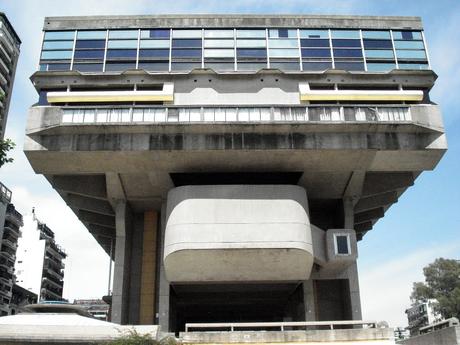
The Biblioteca Nacional is housed in one of the most stunning examples of the Brutalist architecture movement, designed by revered Argentine architect Clorinda Testa in 1961. The entrance is free with identification, and the quiet reading room is the ideal place for getting work done. Agüero 2502.
Image courtesy of Biblioteca Nacional.Architecturally speaking, Buenos Aires is an eclectic melting pot, as varied in style and provenance as the mix of Italian, Spanish, British, and Eastern European ancestry of its inhabitants. A relaxed approach to town planning has resulted in a juxtaposition of old and new, and multiple architectural movements represented on a single block.
Coveted areas such as Palermo and neighbouring districts have been gentrified extensively over the past 15 years. The City government projects are slowly channeling money into poorer neighborhoods, such as the much neglected port district of La Boca, with plans for a designated art quarter to take form over the coming years. Buenos Aires is becoming greener too, with an extensive bike lane system covering much of the city. In the center, the streets boast opulent Italian and French-style buildings, and a stroll along the wide, tree-lined Avenida de Mayo and Recoleta areas serve as a reminder of the country's extraordinary wealth at the start of the 20th century. Despite its growth as a popular tourist destination over the past decade, with polo, tango, steak and red wine being the obvious attractions, these elements only scratch the surface of what this city is really all about. The most effective way of getting a feel for the place is to pull up a chair at an old-fashioned neighborhood bar, order a cafe con leche and medialunas, and people watch.
